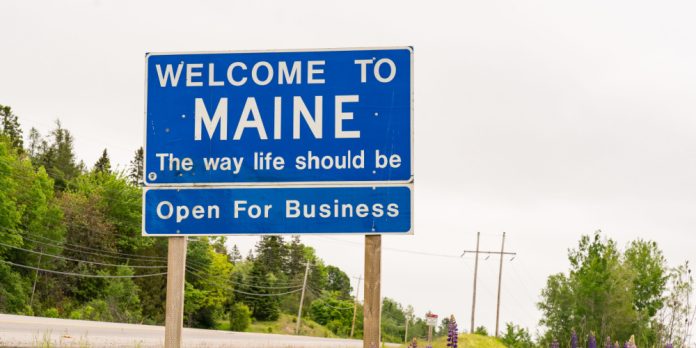Sports betting was legalized in Maine last May but not a single legal bet has been taken, owing to the arduous process to set up regulations in the state. But that is all set to change, after officials of the Gambling Control Unit indicated that sports betting could go live in November.
A spokesperson for the regulator, Shannon Moss, stated that temporary licenses could be issued in November on the current timeline of events.
The Maine Gambling Control Unit has submitted its proposals for the regulation of sports betting to the state’s attorney general for final review and approval.
Moss stated: “Temporary or initial licenses will be issued on the day of adoption to allow licensees to go live and offer wagers on sports according to law and rule.”
Milton Champion – the Executive Director of the Unit who has recently returned from suspension – has indicated that prospective licensees should apply for a license as soon as possible owing to staffing issues, leading some to believe that the launch could be delayed once more.
Taking to LinkedIn, Champion wrote: “The final Sports Wagering rules have been submitted to the Office of the Attorney General for legal review with an anticipated adoption in November 2023. Temporary or initial licenses will be issued on the day of adoption to allow licensees to go live and offer wagers on sports according to law and rule.
“With limited staff, potential licensees should get their applications in as soon as possible. Applications are available on our website.”
The process of getting regulations established in Maine has been far from a simple process. As mentioned, Champion was suspended from his role back in May after he posted two contentious tweets on his personal Twitter account which were deemed to be inappropriate.
Moreover, Maine has been criticized as one of the toughest states with regards to advertising practices, with Bill Miller, the President of the AGA, writing the Control Unit to roll back on some of its measures.
Draft regulations stipulated that TV ads may only be played during events on the channel that the game is broadcast on, whilst no offers or bonuses are allowed to be promoted. Miller cited black market concerns as a reason to reevaluate the measures.
He wrote: “The AGA urges the Maine Gambling Control Unit to remove the restrictions on advertising contained in the proposed regulations, which – if adopted – will undermine a critical tool that the legal industry uses to inform the public about licensed operators, further empower illegal sportsbooks, and limit the success of the legal market in Maine.
“As Maine has recognized, legal sports betting enhances consumer protections and helps promote transparency and game integrity, while also supporting job growth and generating tax revenue. However, to realize these benefits, it is important to avoid policy decisions that – even if well-intended – will ultimately undermine the ability of the regulated marketplace to compete against illegal sportsbook operators.”
However, the MGCU has no plans to reevaluate its position on tough marketing measures, instead doubling down on its approach.
Sports betting was legalized in May 2022 when Gov Janet Mills put pen to paper on the bill that was pushed through the legislature.
The law requires operators to partner with a Native American tribe, which will have control over online and mobile sports wagering once live. Those tribes will receive over 50% of all revenue, with the state also taking 10% tax, meaning that operators will only take up to 40% of revenue.













